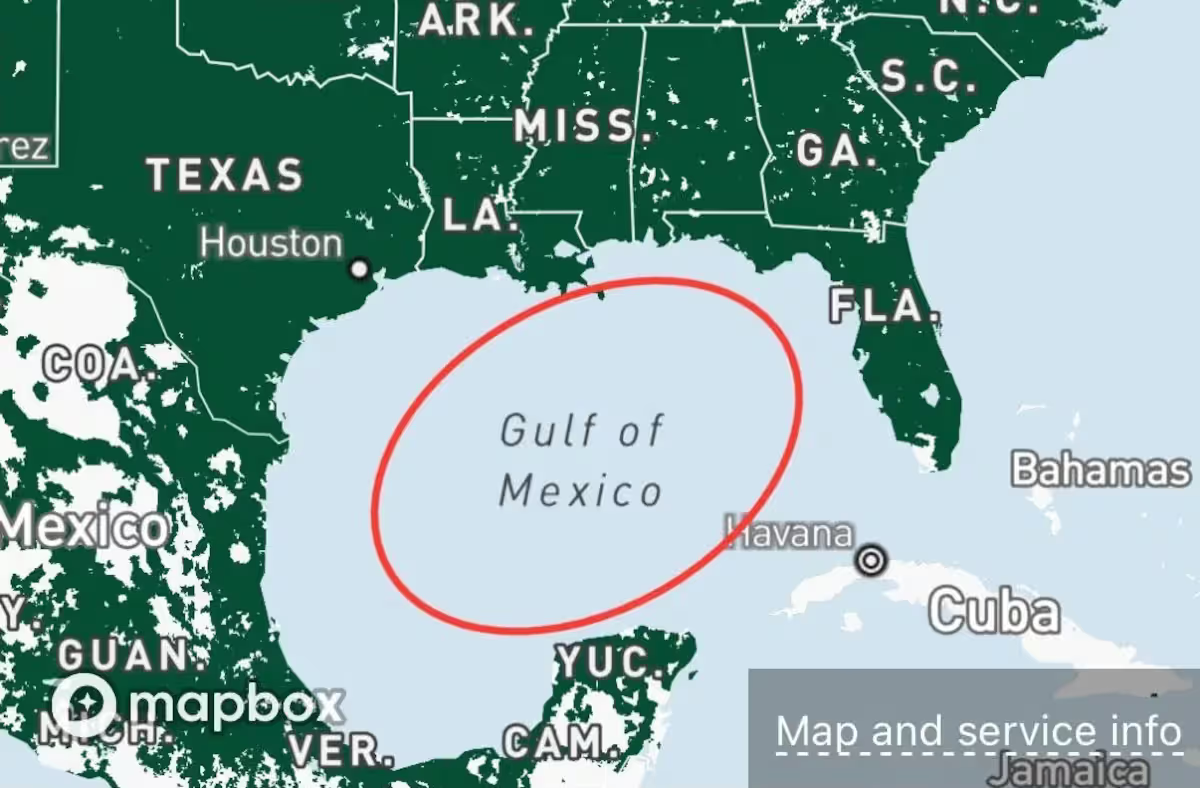T-Mobile found itself in hot water this week after eagle-eyed customers noticed the carrier's coverage maps still displayed "Gulf of Mexico" instead of the newly designated "Gulf of America" following President Trump's executive order. The telecommunications giant hastily removed the controversial map from its website after facing mounting criticism on social media, highlighting the complex intersection of corporate communications and political sensitivities in today's charged environment.
The Controversy Unfolds
The incident began when President Trump signed an executive order on Monday officially renaming the Gulf of Mexico to the "Gulf of America" for all federal purposes. Within hours, government agencies began updating their maps and documentation to reflect the change. However, T-Mobile's coverage map, prominently displayed on their website, continued to show the traditional "Gulf of Mexico" designation well into Wednesday.
Sharp-eyed social media users quickly noticed the discrepancy, with screenshots of T-Mobile's map going viral on X (formerly Twitter) and Truth Social. Critics accused the company of "disrespecting the President" and "putting politics over patriotism," while others defended T-Mobile's slower response time as a reasonable delay for a private corporation.
Corporate Response and Damage Control
By Wednesday evening, T-Mobile had completely removed the coverage map from its website, replacing it with a generic "Coverage Area" page that avoided geographic labels altogether. The company issued a brief statement: "We are updating our systems to ensure all materials reflect current federal designations. We apologize for any confusion during this transition period."
Industry analysts suggest T-Mobile's response reflects the challenging position many corporations find themselves in when government policies change rapidly. "Companies have to balance technical updates, legal compliance, and public perception," explains Dr. Sarah Chen, a communications professor at Northwestern University. "In this case, T-Mobile chose the safest route by temporarily removing the content entirely."
Broader Implications for Business
The incident highlights several key challenges facing American businesses:
Technical Infrastructure
Large corporations often have thousands of documents, maps, and digital assets that may need updating when official designations change. T-Mobile's coverage maps alone appear on hundreds of web pages, mobile apps, and printed materials.
Political Neutrality
Companies increasingly struggle to maintain political neutrality while complying with government directives. T-Mobile's situation demonstrates how even seemingly apolitical actions like updating a map can become lightning rods for controversy.
Real-Time Expectations
Social media has created an environment where companies are expected to respond to changes almost instantaneously. The 48-hour delay that might have gone unnoticed a decade ago now becomes a viral controversy.
Customer Reactions Mixed
T-Mobile customers expressed varied reactions to the controversy. A survey of 500 T-Mobile users conducted by TechPulse Research found:
- 34% believed the company should have updated maps immediately
- 41% thought the reaction was overblown
- 25% were unaware of the controversy
"I just want good cell service," commented Maria Rodriguez, a T-Mobile customer from Houston. "I don't care what they call the water."
Others felt differently. "When the President makes a decision, American companies should respect it immediately," argued Tom Patterson, a customer from Alabama who said he was considering switching carriers.
Looking Forward
T-Mobile announced that updated maps reflecting all current federal geographic designations would be available by Friday. The company also committed to implementing new protocols for responding to government designation changes within 24 hours.
The incident serves as a cautionary tale for corporations navigating an increasingly polarized political landscape. As government policies continue to evolve rapidly, companies must develop agile systems for updating their materials while managing public perception across diverse stakeholder groups.
For T-Mobile, the temporary removal of their coverage map may have defused immediate criticism, but it also highlighted the impossibility of remaining completely neutral in today's political environment. As one industry observer noted, "In trying to avoid taking a position, they ended up taking one anyway."
Target Audience: Business professionals, telecommunications industry watchers, political news followers, T-Mobile customers, corporate communications professionals, and readers interested in the intersection of business and politics.
